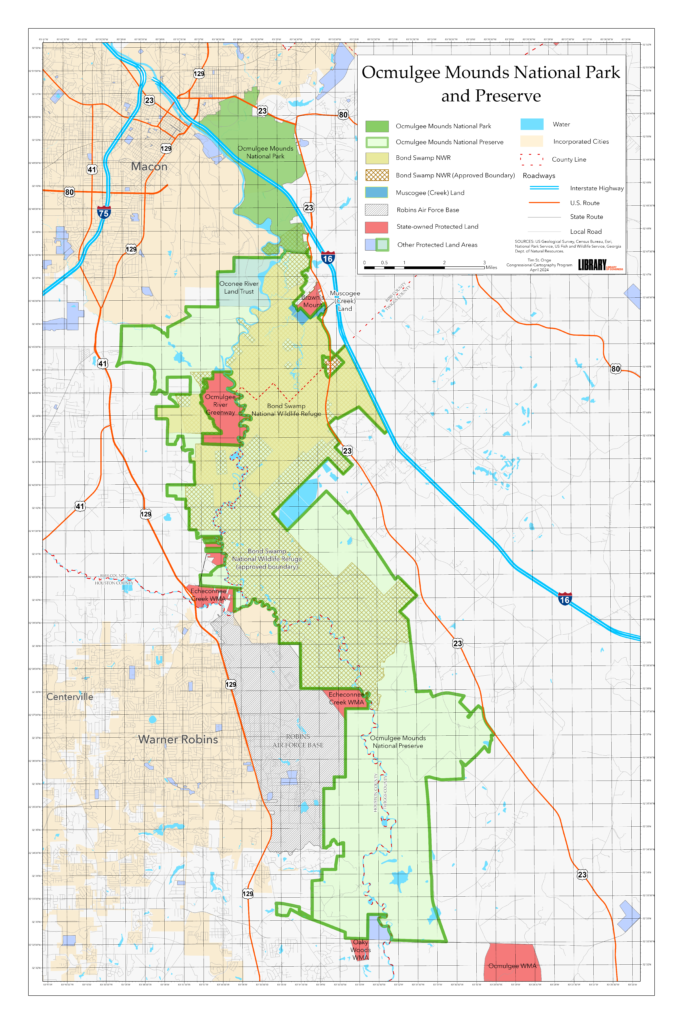
Caption
The National Park Service released a study last year defining the boundaries of the proposed park that incorporated feedback from the Muscogee (Creek) Nation, local elected officials, and community leaders.
Credit: NPS
Several members of Georgia’s congressional delegation introduced legislation Wednesday to create the Peach State’s first national park.
The bill would establish the Ocmulgee Mounds in Middle Georgia as a national park and preserve, upgrading the site from its current status as a national monument.
The area is the ancestral home of the Muscogee (Creek) Nation and has been inhabited continuously by humans for more than 12,000 years. The Muskogean people built mounds there during the Mississippian Period, which began around 900 AD, for meeting, living, burial, and agricultural purposes.
“Ocmulgee Mounds are a living testament to our intertwined histories and a robust source of economic and cultural vitality,” said U.S. Sen. Raphael Warnock, D-Ga., one of four members of Georgia’s congressional delegation sponsoring the bill.
“The Ocmulgee Mounds are of invaluable cultural, communal, and economic significance to our state,” added U.S. Rep. Austin Scott, R-Tifton, who represents the area in the House of Representatives. “Designating them as the first national park and preserve in Georgia is a great bipartisan and intragovernmental effort.”
Other sponsors of the legislation include Sen. Jon Ossoff, D-Ga., and Rep. Sanford Bishop, D-Albany. Eleven other House members from Georgia have signed on as cosponsors.

The National Park Service released a study last year defining the boundaries of the proposed park that incorporated feedback from the Muscogee (Creek) Nation, local elected officials, and community leaders.
The National Park Service released a study last year defining the boundaries of the proposed park that incorporated feedback from the Muscogee (Creek) Nation, local elected officials, and community leaders.
“The Ocmulgee Corridor is a special place, recognized as one of America’s most important wildlife habitats, tribally significant landscapes, and archaeological sites,” said Seth Clark, executive director of the Ocmulgee National Park and Preserve Initiative and mayor pro tempore of Macon-Bibb County.
“Conserving the series of ecological and cultural assets as a national park and preserve is vital to the region.”
This story comes to GPB through a reporting partnership with Capitol Beat.